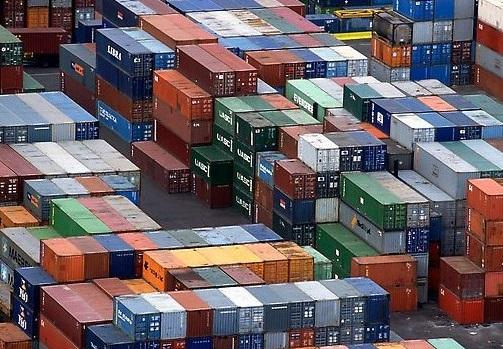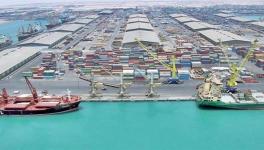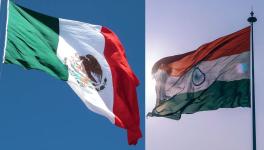India Misinvoiced Rs 6.14 Lakh Crore Worth Trade Transactions with Global Partners in 2017: Report

India ranked third in trade-related illicit financial flows among 135 developing countries by misinvoicing trade transactions with all global partners to the tune of USD 83.5 billion or Rs 6.14 lakh crore in 2017, according to a recent report by the United States-based think tank Global Financial Integrity (GFI). In the report released on March 3, China topped the list with misinvoicing of USD 457.7 billion followed by Mexico with USD 85.3 billion that year.
GFI examined the official government trade data reported to the United Nations (UN) to estimate the magnitude of trade misinvoicing between and among 135 developing countries and 36 advanced economies. GFI states that trade misinvoicing is one of the largest components of measurable illicit financial flows.
According to GFI, trade misinvoicing occurs when importers and exporters deliberately falsify the stated prices on the invoices for goods they are importing or exporting as a way to illicitly transfer value across international borders, evade tax and customs duties, launder the proceeds of criminal activity, circumvent currency controls, and hide profits offshore.
In its analysis, GFI examined 4,860 bilateral trade relationships among these countries for each year over the ten-year period of 2008-2017 and identified the mismatches, or value gaps.
During 2008 to 2017, according to the report, India reported an average mismatch of its trade with global partners to the tune of USD 78 billion or Rs 5.7 lakh crore. Simply put, this amount has been missing from tax cover in those years.
As per the report, in 2017 alone, India has misreported USD 40.9 billion or over Rs 3 lakh crore on trade-related information to the UN. That year, China topped the list with a value gap of USD 296 billion, followed by Mexico (USD 64.5 billion), Poland (USD52.0 billion), Russia (US$42.9 billion), and Malaysia (USD41.0 billion).
In terms of average value gaps of developing countries as a per cent of their total trade with advanced economies over the ten-year period of 2008-2017, GFI finds that Gambia tops the list with 37.3% followed by Togo with 30.2% over the period, the Maldives (27.4%), Malawi (26.8%) and the Bahamas (26.6%).
A total of USD 8.7 trillion of value gaps were identified in trade between 135 developing countries and 36 advanced economies during 2008-2017.
“The data indicate trade misinvoicing has been a persistent challenge across most countries over the ten-year period examined and the amounts involved reflect a massive level of illicit financial flows moving between countries. The data also show the problem is universal in nature – there are large degrees of trade misinvoicing between both advanced and developing economies, as well as between developing economies themselves,” concludes the report.
Among commodities, the report states that the largest value gaps were identified in the trade of electrical machinery at an average gap size of USD 153.7 billion over the ten years of 2008-2017, followed by mineral fuels at an average gap size of USD 113.2 billion and machinery (USD 111.7 billion) over the period.
Stating limitations in its methodology, GFI notes that even as trade in services as a per cent of total world trade has grown, trade in services cannot be detected in this value gap analysis. Trade misinvoicing in services includes falsified invoices management fees, interest payments, licenses, payments for copyrights and patents and other intellectual property rights.
“The analysis is intended to help identify the countries most likely at risk for trade misinvoicing (and therefore, significant government revenue losses), and to recommend policy measures to combat trade misinvoicing to customs authorities in-country and those of their major trading partners,” GFI stated in a press release.
Stating that the analysis suggests that trade misinvoicing continues to be a major global problem, particularly for developing countries that are struggling to raise domestic tax revenue to finance national development goals, GFI recommended governments to improve customs enforcement in order to combat trade misinvoicing.
Get the latest reports & analysis with people's perspective on Protests, movements & deep analytical videos, discussions of the current affairs in your Telegram app. Subscribe to NewsClick's Telegram channel & get Real-Time updates on stories, as they get published on our website.
























